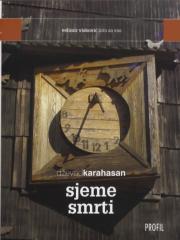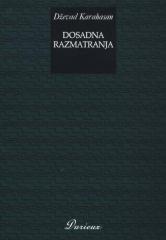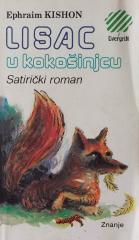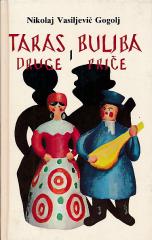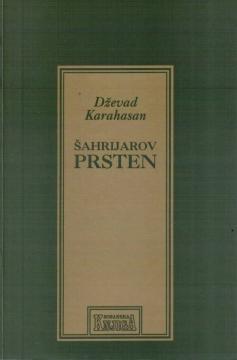
Šahrijarov prsten
In his novel Shahriyar's Ring, Dzevad Karahasan creates a layered story of love, storytelling, and exile, inspired by One Thousand and One Nights. The title alludes to Shahriyar and Scheherazade, where the story saves from death, symbolizing the power of
The story begins in Sarajevo before the war in 1992 and during the siege: young lovers Azra and Faruk are separated. Faruk flees abroad, leaving Azra with a manuscript about Sheikh Figani, an autistic dervish and poet from the 16th century during the reign of Suleiman the Magnificent. Azra, withdrawn into her inner world amid the siege, reads it as a refuge, while the outside world descends into violence and isolation.
The manuscript opens up layers of stories: Figani, a victim of court intrigue in Istanbul, strives to become a court poet, but faces political conspiracies and social pressures, retreating into fantasy. The deepest layer leads to ancient Mesopotamia: the giant Bell, a disembodied spirit from Uruk, seeks incarnation as a human, creating the female half of Belitsilim through the Sumerian god Enki – a myth about the creation of the world through a dialogue between male and female.
Through these nested stories, Karahasan explores themes: storytelling as a defense against death and war, an autistic retreat into the inner world in opposition to social reality (the characters are "autistic personalities" seeking wholeness), exile as a Bosnian seal, dialogue with the Other ("Jedni od doctori"), and the war trauma of Sarajevo. The ring symbolizes connection, exile, and the eternal search for identity, where love becomes a metaphysical chronicle - theological-political and existential.
The novel, with essayistic depths and mystical layers, celebrates narrative as healing, criticizing patriarchy and violence through a female perspective (Azra/Scheherazade). As part of Karahasan's "one book" project, it remains a masterpiece of Bosnian modernity, where history merges with myth in defense of the spirit.
One copy is available
